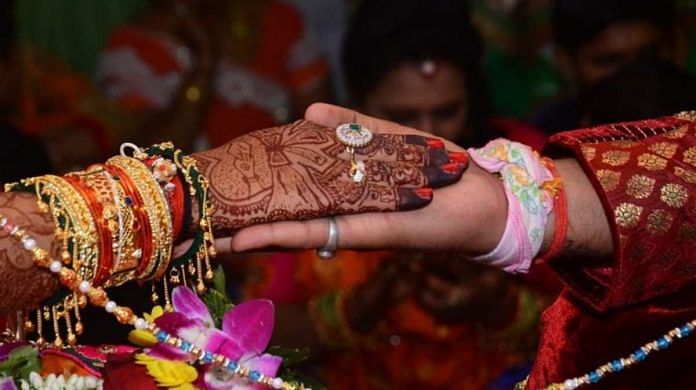New Delhi: The Delhi High Court Tuesday said “jurisdiction after jurisdiction” in the world has held that “merely because you are married, it is not enough to say [rape] is not an offence”. Hearing a batch of petitions challenging the exception for marital rape in the Indian Penal Code (IPC), Justice Rajiv Shakdher asked, “Have 50 countries got it wrong?”
The petitions, filed by two NGOs, RIT Foundation and All India Democratic Women’s Association, and two individuals, have asked the court to read down the exception to marital rape in Indian criminal law. A 2017 case, in which a 27-year-old woman alleged that she was raped by her husband, has also been tagged with the petitions.
Section 375 of the IPC defines rape and the concept of consent but also says that these conditions do not apply in the case of married couples. “Sexual intercourse by a man with his own wife, the wife not being under fifteen years of age, is not rape,” the exception reads.
In a 2017 judgment, the Supreme Court wrote down this exception and changed the age of consent to 18 for a married woman. However, that case dealt exclusively with cases of child marriage, and not with the wider issue of marital rape.
The current petitions before the division bench of Justice Rajiv Shakdher and Justice C. Hari Shankar plead that the marital rape exception violates several rights enshrined within the Constitution, including the right to equality before the law (Article 14) and the right to life and personal liberty (Article 21).
Also Read: Don’t be a rape apologist. Marital rape is rape
‘Unmarried women not told to file rape charges under other sections’
Justice Shakdher said “Section 375 criminalises rape”. “This exception is a firewall. The heart of the matter is whether this firewall stands constitutional scrutiny under [Articles] 14 and 21,” he added, referring to the 2017 case involving the 27-year-old woman.
Representing the State of Delhi in this tagged matter, advocate Nandita Rao argued vehemently that the exception does indeed withstand constitutional scrutiny. According to her, the exception does not violate Article 21 since the woman is free to file a complaint under other provisions of the law, such as Section 326 (grievous hurt), Section 377 (unnatural sexual offences), and Section 498A (cruelty).
Justice Shakdher, however, dismissed Rao’s submissions and said the question before the court was not whether the woman had other legal avenues available to her, but whether the exception violated constitutional guarantees.
“I find it difficult to appreciate that the offence affects an unmarried woman’s dignity but does not affect a married woman’s dignity,” Shakdher noted, adding that an unmarried woman above the age of 18 is not directed to “go and file under other sections” when she alleges rape.
“The point is this — a woman was unwilling, the man imposes himself. An offence has happened. The only reason the accused is not visited by Section 375 is that they are married. The rationale and the thrust [for criminalising marital rape] is that the relationship cannot be put on a different pedestal,” the judge said. “A woman is a woman before and after marriage. Jurisdiction after jurisdiction has held that merely because you are married, it is not enough to say it [rape] is not an offence.”
“For so many centuries, it’s not been tested. It’s being tested today. There is nothing that stops this court from examining this provision,” he added.
Petitioners’ arguments
Advocate Raghav Awasthi, representing the petitioners, drew the attention of the court to a 2014 judgement of the Philippines Supreme Court that affirmed that marital rape can be prosecuted as a criminal offence. He also said that in India women have historically been seen as the “property” of men, but that this went against the Constitution of India.
Awasthi further contended that India is a party to the Convention on Elimination of Discrimination of Women (CEDAW), 1980 — an international treaty adopted by the United Nations General Assembly — which explicitly recognises the principle of gender equality. He submitted that international conventions must be supplemented with domestic laws when there is a vacuum.
On Monday, advocate Karuna Nundy, who is also representing the petitioners, had argued that the marital rape exception violated articles 14, 15, 19, and 21 of the Constitution, which guarantee fundamental rights including the rights to equality, free speech, and life and liberty.
According to Nundy, the court should strike down the exception under Article 13 — which pertains to laws inconsistent with or in derogation of fundamental rights — without awaiting legislative sanction.
The bench will resume hearing the matter Wednesday.
Akshat Jain, a first-year student of law at NLU, Delhi, is an intern with ThePrint
(Edited by Asavari Singh)
Also Read: Over 1,100 rape cases ended in compromise after going to court since 2014: NCRB



